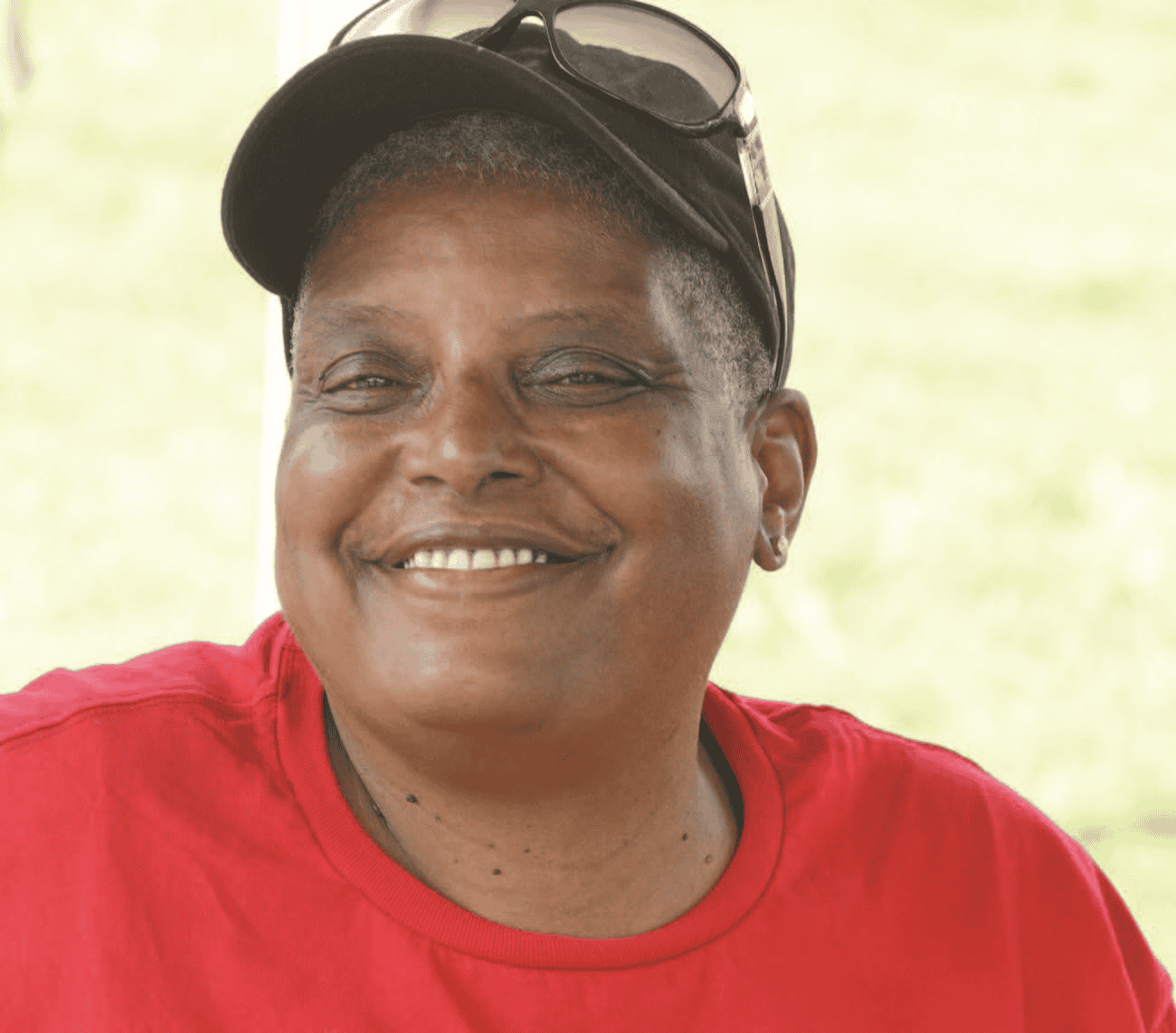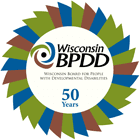Self-Advocate Leadership
and Engagement:
Individuals
Why Self-Advocate Leadership and Engagement Matters to Individuals
Self-advocate leadership and engagement has proven to be an effective best practice. The use of peers with lived experience continues to be studied and shows promising outcomes for people with disabilities (1). Multiple organizations across the country have been using peer to peer networks in their state or on a national level to empower people with disabilities to advocate for themselves. Some of these networks are:
Green Mountain Self-Advocates- Vermont’s statewide self-advocacy organization that supports state and national projects that elevate the voice of people with disabilities. They are a model organization for others around the US and collaborate on several national projects.https://gmsavt.org/
Self-Advocates Being Empowered (SABE)- A national self advocacy organization with members in every state that ensures that people with disabilities are treated as equals and that they are given the same decisions, choices, rights, and responsibilities. https://www.sabeusa.org/
Self-Advocacy Resource and Technical Assistance Center (SARTAC)- The oldest national self-advocate organization with the mission to strengthen the self-advocacy movement by supporting self-advocacy organizations to grow in diversity and leadership. https://www.selfadvocacyinfo.org/
The Living Well goal was to establish a permanent, statewide peer leadership network of self-advocates in collaboration with People First Wisconsin. The leaders are people with lived experience who work with the service providers, community members, and other self-advocacy groups in a training/mentoring role to improve the health, safety and connectedness of other self-advocates. The goals of this model included:
• Creation of a group of self-advocate leaders to share their own lived
experience.
• Use of self-advocate leaders to contribute to materials development
with a focus on plain language and easy read.
• Co-presentation at the local, state and national levels on their lived
experiences and experience educating with a peer to-peer model.
• Providing individualized and relatable training and support and
equipping individuals to maximize independence, choice and safety.
The Living Well grant recruited and worked with 11 self-advocate leaders across the state and in collaboration with provider agencies who have trained over 415 people using the education tools created by the grant. Evaluation results have been positive with participants surveyed to be enjoying the sessions, learning new information, and will take action.
How Individuals Can Become Successful Leaders
Self-advocate leaders need professional development and coaching to be successful in their leadership positions. Advocates need to have the opportunity for professional development that includes necessary workplace skills and opportunities to build their self-advocacy and self-empowerment. By providing both, self-advocates will feel comfortable and prepared to share their lived experience with different audiences. Coaching and mentoring is an integral part of the success of self-advocate leaders. The Living Well grant used multiple options to provide coaching and mentoring for self-advocate
leaders. With professional development, coaching and mentoring, self-advocate leaders will flourish and inspire other people with disabilities to become leaders.
Provide training for advocates on necessarily workplace skills
• Use of technology
• Creating and delivering presentations
• Time management
• Communication
• Roles and Responsibilities
• Goal setting
Self-advocates and self-advocate organizations can look for specific leadership training
• Green Mountain Self-Advocates offer a variety of trainings on topics including working with peer groups, plain language, and abuse/neglect prevention.
• Several states offer peer mentoring and support through their home and community-based service systems. Individuals with lived experience provide this support to others with disabilities. Some states that currently include these services in their HCBS programs are Alabama, Connecticut, Georgia, Maryland, Michigan, Tennessee and Washington. Contact your state to find out if you have a peer mentoring program in your HCBS system or your state DD Council.
• Elevatus Healthy relationships is a sexuality and relationships curriculum developed specifically for people with developmental disabilities. You can contact Elevatus to find a training provider in your area. https://www.elevatustraining.com/
• Partners in Policymaking was created 35 years ago by the Minnesota Governor’s Council on Developmental Disabilities. Since that time, the program has expanded to over 35 states. Self-advocates attend the training program to learn how to advocate for policies and initiatives that support full participation and inclusion of people with developmental disabilities. Contact your state DD Council to find Partners in Policymaking in your state.
Self-Advocates will benefit from Coaching and Mentoring
• A coach can assist in any initial recruitment, training, and professional development of the self-advocate leaders. In addition, the coach can assist in developing any specific educational material development for use by self-advocate leaders.
• A self-advocate mentor is a person with a disability with lived experience. The role of the mentor is to meet monthly with self-advocate leaders to go over their goals, identify any additional goals, and problem solve any issues that arise
in their advocacy.
• Monthly meetings with self-advocates provide an opportunity to connect with other self-advocates, update on their current projects, review new materials, and provide professional development.
• Support from state People First chapter for contracting with the self-advocate leaders. The agencies’ role includes initial interviewing, contracting, orientation, time tracking, payments, and general support for the self-advocate leaders.
Tools for Individuals
Safe and Free Series– The WI BPDD Living Well Safe and Free series is designed to help youth and adults learn about important topics and skills for self-advocacy, safety and independent living. The topics include Knowing Yourself, Knowing Your Community, Communication, Problem Solving, Rights, Voting, Safety at Home, Safety in the Community, Abuse Awareness and Relationships. Ask your provider if they are using the Safe and Free series and sign up for a class. Also, contact People First Wisconsin to see if they are teaching a class.
Let’s Talk About Rights Guides and Videos- Rights are things that people can have or do. People with disabilities should be allowed to have and do all the same things as people without disabilities. When people understand their rights, they have better lives. These guides and videos can help agency staff, guardians and people who receive support learn about rights. Ask your provider if they are using the WI BPDD Living Well Let’s Talk About Rights Guides and Videos.
Healthy, Safe and Connected Toolkit– People with disabilities need to be healthy, safe, and connected. This toolkit was developed by the Living Well Project team and self-advocates with People First Wisconsin. This toolkit can be used by agencies to give people ways they can be healthy, safe, and connected in their communities. It is written in plain language and has planning guides and worksheets. Ask you provider if they are using the Healthy, Safe and Connected Toolkit.
The Self-Determination Channel– This channel from WI BPDD is dedicated to sharing the voices of people with disabilities about making choices and speaking up for themselves. They celebrate successes and show that, through perseverance, anything is possible.
Elevatus Healthy Relationships and Sexuality– Learn about relationships and sexuality with this training program. Wisconsin has one provider, ODC, offering this training.
Reflection Activity
Download the Reflection Activity to make your Self-Advocate Leadership and Engagement Action Plan!

Navigate the Blueprint
Hear from Self-Advocate Leader, Kristi Schuenemann, about how the Living Well Project has impacted her life and career trajectory:
Real Lives. Real Connections.
“My confidence has grown in myself and I’ve noticed that I’m able to speak out more and be more comfortable with it. I went from being unsure of my life and career path to knowing this is where my heart belongs and this is what I want to do.”
-Living Well Self-Advocate

